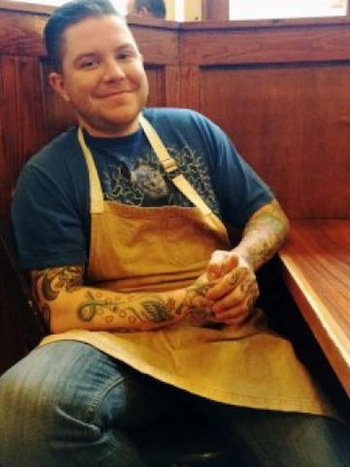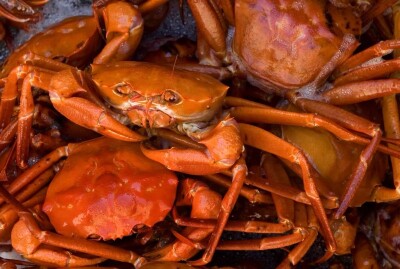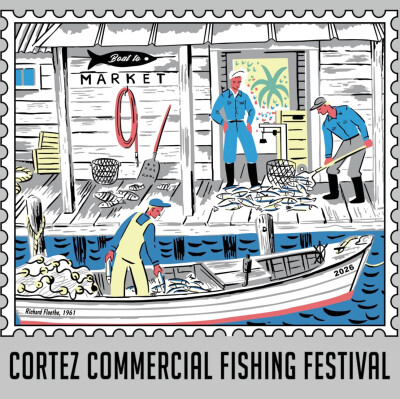Before Katrina and before the Deepwater Horizon oil spill, Gulf of Mexico shrimp was suffering in the marketplace from competition with volumes of farm-raised, imported product.
In 2004, the year before Hurricane Katrina made landfall in prime Gulf of Mexico shrimp territory, the Louisiana Seafood Promotion and Marketing Board kicked off a cook-off in an effort to showcase wild American seafood. Little did they know what was really about to hit them. But their foresight set them up for recovery, long and slow though it has been.
Alaska chef Beau Schooler of the Rookery Café in Juneau holds the title of America’s Best Seafood Chef.In the aftermath of the spill, Louisiana tried to reclaim its markets. Fishermen and chefs played major roles in getting the word out, according to Ewell Smith, former director of the Louisiana Seafood Promotion and Marketing Board
“Before Katrina we had worked with chefs and did little PR pieces,” Smith said. “Then we created the Louisiana Chefs Council, and they became our ambassadors.”
The damage to oysters was an example of how wide-open communications channels to officials and the public at large helped address brand damage.
While some oysters were lost to oil, the overwhelming damage to the crop was from fresh water introduced to the ecosystem to combat the spill.
Today, there are more ways for consumers to know where their domestic seafood comes from, in many cases right down to the vessel and voyage.
The work done to offset the effects of the BP spill, economically, spiritually and emotionally, continues, although the crisis it caused is long gone.
Both chefs and fishermen have unanswered questions about the long-term effects the spill might have spawned, not in terms of seafood safety for consumers but the health of the resource itself.
Last weekend, Alaska chef Beau Schooler took the title of America’s Best Seafood Chef at the annual event. But Louisiana is never far behind. Chef Michael Brewer made seafood nachos and claimed third place. Second place went to Georgia’s Adam Evans, who prepared roasted (invasive) lionfish with Sapelo Island clams.
Read more about the Gulf Coast’s recovery in our September issue.







